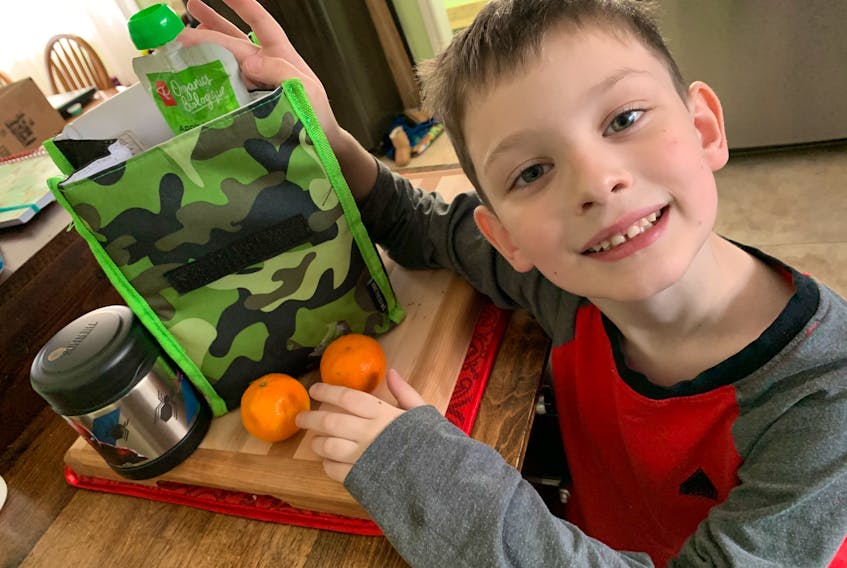GLACE BAY, N.S. — It may be a new year, even a new decade, but some things never seem to go away.
Let’s take, for example, the daily school lunch. Or the daily work lunch. And you’re probably thinking, yes, take it away, please.
While you may have had plenty of ideas on packing those pesky lunches back in September, there’s a good chance you may have run out of steam by now and the school/work year still has many months to go. That’s why registered dietitian Ann Marion Willis has put together a workshop for Jan. 27 at the Glace Bay Atlantic Superstore on how to keep putting together tasty, nutritious lunches that your kids will happily eat - or even yourself.
“I just came back from maternity leave at the end of November and it was probably the first thing that I got asked to put on,” says Willis. “I have a six-year-old so I feel the exact same thing with packing lunches.You get two months into it and you think oh my gosh I really have another eight months of this?”
Willis says taking advantage of the holiday break can help you introduce new ideas for lunches when the kids return to school.
“It’s a good time to introduce new ideas,” she says. “The adults also have resolutions - we pack lunches too. You work for so many years and you pack so many lunches over a lifetime.”

To deal with just over 200 school lunches per child per year or about 240 lunches for the average working adult with two weeks vacation plus the usual holidays per year, some organization is needed.
“Number one is get them involved,” says Willis. “Depending on their age, this could vary but it could be anything from taking them to the grocery store with you to getting them to pack their own lunch or even just printing out a list of foods on the fridge and getting them to check off on what they want that week.”
Make lists of proteins, starches, vegetables and fruit as well as other foods and get your child to check off one or two in each column so when you pick up groceries, you just buy those items. For example, a sandwich, filled with vegetables and a protein like cheese, could check all the boxes for starch, protein and vegetable. Add an apple for fruit and you’re good to go.
But that’s not an option if you’re not a fan of sandwiches, like Willis’ six-year-old son Levi Hart.
“I’ve never sent my son with a sandwich because he’s not a sandwich kid - he doesn’t eat them at home and he’s cool with that. There’s just no way he would finish it,” says Willis. “But cheese and crackers? Even if he gets 3 crackers and two pieces of cheese, that’s good.”
Willis says parents shouldn’t become alarmed if their child comes home with a partially unearned lunch - just save the uneaten parts, such as a whole piece of fruit and use it as an after school snack. Ask your child if they felt full after eating lunch and if they want more or less food.
“They’ll get by - If they’re hungry they will eat. If not, there’s an after school snack that’s another opportunity for them to get those nutritious foods into them. So don’t freak out if they’re not eating every bite of their lunch,” she says. “It’s only one meal. Just give them a good after school snack.”
Try to fill the lunch with healthy foods that the child will eat.
“Biggest mistake that adults might make: too many treats,” says Willis. “We want to make lunch fun but at the same time, we need to provide foods that are going to give them lasting energy so that we’re not sending them with food that they’re going to bounce up and then by 2 o’clock they’re going to crash.”
And invest in good quality containers that don’t leak and maybe a vacuum insulated storage jar to take foods like soups and stews for times when warmer meals may be appreciated.









